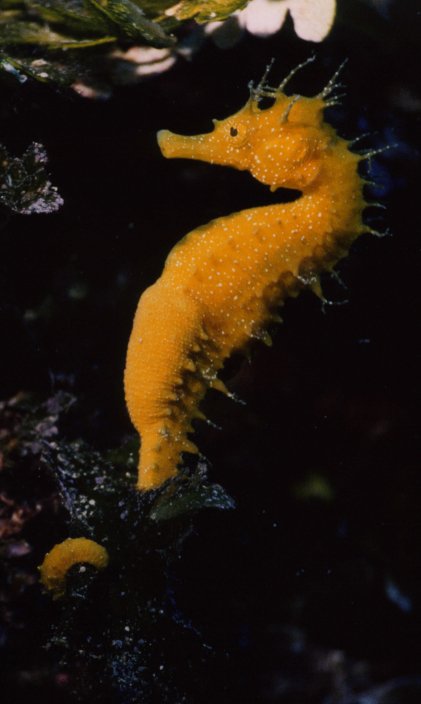Press Release on the Thursday, June 8, 2006 – World Oceans Day – BICREF
The seahorse is locally protected and is usually thrown back in the sea with many other by-catch not landed at the fish market.
 The Biological Conservation Research Foundation – BICREF – is recommending that on World Oceans Day, one would reflect on what seas and oceans were providing to humanity.
The Biological Conservation Research Foundation – BICREF – is recommending that on World Oceans Day, one would reflect on what seas and oceans were providing to humanity.
BICREF has joined forces with the Deep Sea Conservation Coalition, an international alliance of over 50 organisations that is calling for a moratorium on seabed trawling.
Trawling indiscriminately collects all that is living on the seabed, including eggs, young fish, and organisms that were of no interest to the fishing economy.
Locally, some of the target species caught in this way include prawns, red mullet, octopus, pandora, red sea bream, picarel, squid and cuttlefish. According to a local fisheries trawlers survey, the various marine species landed in 1999 using this gear amounted to 86,863 kilogramme.
Bicref said that the World Conservation Union’s (IUCN) Red List, released on May 2 in Switzerland, underlined the ongoing decline of the earth’s biodiversity, and man’s impact on life on earth and in the oceans.
Once believed to be resilient to extinction, marine species were now disappearing at a faster rate than their terrestrial counterparts.
The first comprehensive regional assessment of selected marine groups was held this year and the picture is far from encouraging for the ocean’s large marine animals, which top extinction risk categories.
“Animals that are part of our heritage and have been around since the age of the dinosaurs are now going down the drain,” Carl Gustaf Lundin, head of the IUCN Global Marine Programme, warned.
Sharks and rays were among the first marine groups to be systematically assessed and the biggest marine group to go onto the Red List this year. Of the 547 species listed, a fifth threatened with extinction.
Deepwater sharks, such as the Portuguese dogfish only recently recorded in Maltese territorial waters, had a naturally low biomass, and were limited by the low productivity and geographic constraints that defined their cold, deepwater environment.
In the past, sharks and rays were discarded, but today they were purposefully targeted for their fins and meat, and were under serious threat from a combination of destructive fishing practices, including high seas seabed trawling.
They were also landed as by-catch – fishermen in deepwater areas could not avoid catching deepwater sharks alongside other fish species, due to their diversity and widespread nature.

